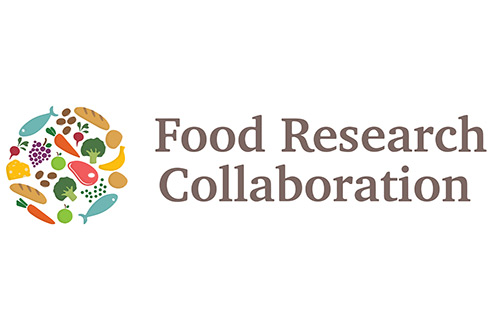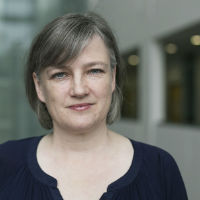The Food Policy PhD/MPhil will explore the role of food in society and its impact on health, environment, social justice and economy in a vibrant research community, based in our Centre for Food Policy.
Research centres and groups
Key information
| Starting date | Deadline for application |
|---|---|
Duration
Affiliations

The Food Research Collaboration (FRC) is an initiative hosted by the Centre for Food Policy to facilitate joint working by academics and civil society organisations (CSOs) to improve the UK food system.
Food Policy Postgraduate research degrees PhD/MPhil course Overview
You can tailor your Food Policy research degree to suit your own interests. We will provide extensive support and training to help you succeed being part of the School of Health & Psychological Sciences.
Based in our Centre for Food Policy, you will become join a vibrant and dynamic research community. Explore various aspects of how policy-making processes work and how they reflect and shape the nature of food supply and consumption.
The Centre’s researchers are especially interested in the policy place of food in society. Along with the impact on health, environment, social justice and economy.
Your MPhil/PhD aims to help you gain the skills to become a professional researcher. You will contribute original work which will extend the current knowledge base and influence food policy.
Structure
You will initially be registered for an MPhil award. Promotion to registration to PhD is not automatic, but contingent on the satisfactory outcome of a review process. This normally takes place towards the end of the first year of registration for full-time candidates. Part-time candidates will have their review process towards the end of the second year.
You submit a report to an academic panel and present at the annual research colloquium.
If the outcome is satisfactory, you will be upgraded to a PhD. The programme will conclude with the submission of research in the form of a PhD thesis. Attendance at a viva voce examination is also required. This will be in front of at least two examiners, at least one of whom will be external to City.
For full details about the City PhD programme structure, please see the Guide for Research Students.
Requirements
You should normally have a track record of high academic achievement, demonstrated by a good undergraduate degree with at least a second class (upper division) pass or equivalent; plus a good Masters-level degree with at least a pass with merit (or equivalent).
If your first language is not English, the following qualifications are necessary to meet the English language requirement for entry to a postgraduate course of study:
- A first degree from a UK university or from the CNAA
- A first degree from an overseas institution recognised by City as providing adequate evidence of proficiency in the English language, for example, from institutions in Australia, Canada or the USA
- GCE O-level/GCSE English language or English literature, grade C minimum
- An overall score of 6.5 in the English Language Testing System (IELTS) with a minimum of 6.0 for each subtest
- Other evidence of proficiency in the English language which satisfies the board of studies concerned.
For more information see our English language proficiency requirements at City.
For further information on visas, see our main Visa page.
Fees and funding
Full-time Home/UK:£5,000 per year
Part-time Home/UK:£2,500 per year
Full-time International:£13,500 per year
Part-time International:£6,750 per year
Fees for doctoral candidates are charged annually and cover registration, supervision and examination.
Fees are subject to review each year and may vary during your period of registration. Where applicable, fees for City's programmes will be subject to inflationary increases in each academic year of study commencing in September. Our policy for these increases is set out in our terms and conditions of study.
Support for PhD study
Prospective students are encouraged to explore doctoral Grants and funding opportunities such as:
- NIHR and MRC Fellowship schemes
- Specialist scholarship schemes (such as those provided by Arthritis UK, Diabetes UK, and the British Heart Foundation)
- Research Council studentship awards, if available.
Our bursaries are non-repayable sums of money granted by the University, usually based on need.
Our loans are repayable sums of money granted by the University or other body.
Our scholarships are when the University pays towards your Study fees. You may also be eligible for further funding.
Postgraduate Doctoral Loans
The Government has introduced a new Postgraduate Doctoral Loans scheme which can provide a loan of up to £25,000.
This will be over three years to support study for a doctoral degree.
A Postgraduate Doctoral Loan can help with course fees and living costs while you study. It can be used alongside any other forms of support you may be able to receive.
For more information, please see our Postgraduate Doctoral Loans page.
Additional expenses
Some of our degrees may involve additional expenses which are not covered by your tuition fees. Find out more about additional expenses.
Academic support
City has a well-established structure and processes to support your research.
Supervision
Research students are appointed a supervisory team consisting of at least two supervisors.
One of these will be designated as the first point of contact and will be responsible for ensuring that you receive effective supervision. As well as develop the skills and knowledge required to contribute to research as a professional within a supportive research environment.
Each supervision session is based around your particular needs, work programme and completion targets.
Training
Research training will be provided and students are encouraged to develop skills in both research and teaching.
Read more about how we help you to develop your skills as a researcher at City.
Research Environment
The Centre for Food Policy currently has around 17 full- and part-time research students. It forms part of the Department of Health Services Research and Management, which also has a vibrant research culture and a growing group of scholars. We are committed to building an excellent reputation in their discipline-related fields.
We provide students with a range of academic and training support as well as regular research seminars and symposia. This will facilitate your research and develop your careers and our research environment.
For more information, please see the visit the City Doctoral College.
How to apply
We accept applications for full-time study for entry in September each year.
For an informal discussion of your research proposal, please contact Christian Reynolds.
To apply, you should submit the following documents:
- one copy of the MPhil/PhD in Food Policy online application form
- Your research proposal (three sides of A4)
- A non-technical summary of the proposed research of no more than 400 words
- Copies of your degree transcripts and certificates (originals or certified copies).
- Proof of your English language proficiency (if English is not your first language).
See here for more information on how to prepare your research proposal.
Apply now
-
Select one of the available starting dates to start your application.
-
Select one of the available starting dates to start your application.
For further application enquiries please contact our PGR enquiries team.
Find a supervisor
See our full list of academic staff and potential supervisors in Department of Health Services Research and Management.


